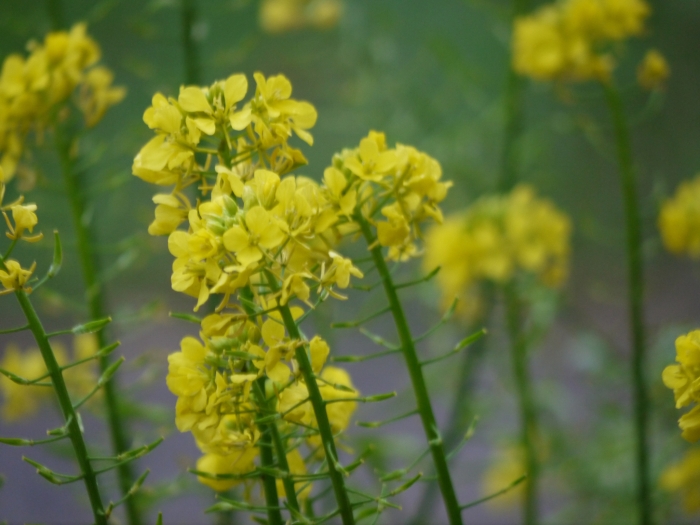White Mustard
(Sinapis alba)
White Mustard (Sinapis alba)
/
/

Alexis
CC BY 4.0
Image By:
Alexis
Recorded By:
Copyright:
CC BY 4.0
Copyright Notice:
Photo by: Alexis | License Type: CC BY 4.0 | License URL: http://creativecommons.org/licenses/by/4.0/ | Rights Holder: Alexis | Publisher: iNaturalist | Date Created: 2018-10-25T08:01:19-07:00 |























































Estimated Native Range
Summary
Sinapis alba, commonly known as White Mustard, is an annual herb that is native to the Mediterranean region, including Europe and Western Asia, as well as the Russian Far East. It typically grows to a height of 70 centimeters (28 inches) with stalkless pinnate leaves. The plant is characterized by its bright yellow flowers that bloom in spring and summer, leading to the production of glabrous or sparsely bristled siliquae (seed pods). These pods contain roughly half a dozen seeds each, which are harvested just before ripening to prevent dehiscence. White Mustard seeds are hard, spheroid, and range in color from beige or yellow to light brown, measuring about 1.0 to 1.5 mm in diameter.
White Mustard is valued for its seeds, which are used to make mustard condiments. It is also used as a fodder crop and as green manure in agricultural practices due to its ability to improve soil fertility. The plant is easy to grow and maintain, thriving in full sun and adaptable to various soil types with different drainage speeds. However, it requires careful management to prevent it from becoming invasive in non-native areas. In gardens, it can be used as a cover crop to suppress weeds and as a beneficial companion plant due to its ability to attract beneficial insects.CC BY-SA 4.0
White Mustard is valued for its seeds, which are used to make mustard condiments. It is also used as a fodder crop and as green manure in agricultural practices due to its ability to improve soil fertility. The plant is easy to grow and maintain, thriving in full sun and adaptable to various soil types with different drainage speeds. However, it requires careful management to prevent it from becoming invasive in non-native areas. In gardens, it can be used as a cover crop to suppress weeds and as a beneficial companion plant due to its ability to attract beneficial insects.CC BY-SA 4.0
Plant Description
- Plant Type: Herb
- Height: 1-1.3 feet
- Width: 0.5-0.8 feet
- Growth Rate: Rapid
- Flower Color: Yellow
- Flowering Season: Summer
- Leaf Retention:
Growth Requirements
- Sun: Full Sun
- Water: Medium
- Drainage: Slow, Medium, Fast
Common Uses
Edible*Disclaimer: Easyscape's listed plant edibility is for informational use. Always verify the safety and proper identification of any plant before consumption., Low Maintenance
Natural Habitat
native to the Mediterranean region, including Europe and Western Asia, as well as the Russian Far East
Other Names
Common Names: Yellow Mustard, Weißer Senf, Keltasinappi, Moutarde Blanche, Moutarde Rude, Hvitsennep, Witte Mosterd, Kvitsennep, Vitsenap, Bai Jie
Scientific Names: , Sinapis alba, Brassica hirta, Sinapis foliosa, Sinapis alba var. alba, Leucosinapis alba, Sinapis mairei, Sinapis alba var. melanosperma, Bonannia officinalis, Bonnania officinalis
GBIF Accepted Name: Sinapis alba L.